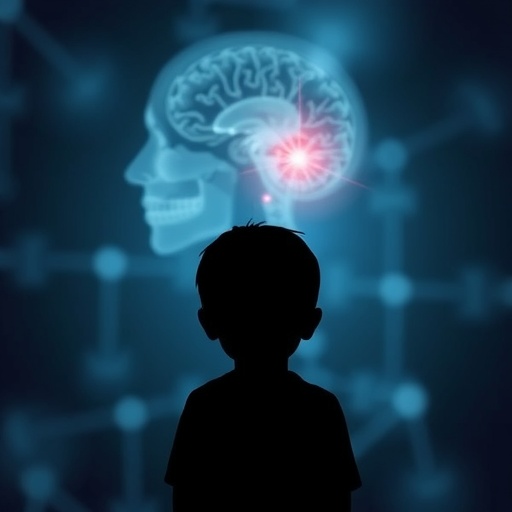In recent years, the enduring impact of adverse childhood experiences (ACEs) on adult mental health has garnered significant scientific and clinical attention. A newly published systematic review in BMC Psychiatry dives deep into this issue, meticulously analyzing the link between childhood maltreatment and the development of post-traumatic stress disorder (PTSD) in adults over the age of 18. This comprehensive study sheds light on how early traumatic exposures echo throughout an individual’s lifespan, shaping vulnerability to chronic psychiatric conditions.
Post-traumatic stress disorder is a complex psychiatric condition arising after exposure to traumatic events. While PTSD is often associated with singular, distinct traumatic incidents, emerging evidence underscores how cumulative adverse experiences during childhood may profoundly influence PTSD risk in later life. Childhood maltreatment, including physical abuse, sexual abuse, emotional neglect, and exposure to traumatic household environments, can disrupt neurodevelopment and stress regulation mechanisms, establishing a biological and psychological milieu predisposed to PTSD manifestations decades later.
The reviewed study systematically searched multiple scientific databases—including PubMed, Google Scholar, Scopus, and Cochrane—focusing on original research studies conducted between 2014 and 2025. It incorporated randomized controlled trials, cross-sectional, and cohort studies involving adult populations with a documented history of ACEs and diagnosed PTSD. Rigorous inclusion criteria and quality assessment tools like the Newcastle Ottawa Scale and axis scale were utilized to ensure methodological robustness and reduce bias, enhancing the reliability of reviewed findings.
From an initial pool of 356 articles, the authors meticulously screened and narrowed the selection to 26 qualifying studies that delved into various dimensions of childhood maltreatment and its neuropsychiatric ramifications. The studies encompassed a global perspective, evaluating populations from diverse socio-cultural backgrounds and encompassing multiple forms of abuse and neglect. This broad yet detailed approach allowed the authors to draw comprehensive conclusions about the ACE-PTSD relationship.
Consistently across these studies, a significant correlation emerged linking multiple forms of childhood trauma to increased PTSD prevalence in adulthood. The cumulative burden of ACEs appeared to amplify the clinical severity, chronicity, and functional impairment associated with PTSD symptoms. Importantly, the type, duration, and developmental timing of maltreatment played instrumental roles in modulating the risk, with early-life adverse events producing more profound neurobiological and psychological sequelae.
Mechanistically, these findings align with current neuroscientific models suggesting that early trauma induces lasting alterations in brain structures integral to emotion regulation, memory consolidation, and stress response—such as the amygdala, hippocampus, and prefrontal cortex. Chronic activation of the hypothalamic-pituitary-adrenal (HPA) axis and dysregulated glucocorticoid signaling pathways underpin the heightened vulnerability. These neuroendocrine disruptions, coupled with maladaptive cognitive schemas formed during formative years, culminate in heightened PTSD susceptibility when faced with subsequent traumatic stressors.
The review further highlights that PTSD arising from ACEs frequently co-occurs with comorbid mental health disorders such as depression, anxiety, and substance use disorders. This comorbidity complicates clinical diagnosis and management, underscoring the pressing need for integrated therapeutic approaches that address the layered biopsychosocial dimensions of trauma. Early detection and tailored interventions focusing on ACE histories could revolutionize PTSD treatment paradigms, mitigating morbidity and enhancing recovery trajectories.
Despite these insights, the authors emphasize significant gaps in the current literature. There remains a paucity of longitudinal studies tracking the dynamic interplay between ACEs and PTSD onset into adulthood. Moreover, variations in ACE measurement tools and heterogeneity in PTSD diagnostic criteria across studies challenge synthesis and generalizability. Addressing these methodological inconsistencies will be critical in unpacking causal pathways and refining preventive strategies.
From a public health perspective, this systematic review makes a compelling argument for prioritizing child protection policies and mental health surveillance programs. Preventing childhood maltreatment and developing resilience-building interventions early in life may substantially reduce the global PTSD burden. Furthermore, educating healthcare providers about the nuanced pathways linking ACEs to adult psychopathology is paramount to designing effective screening and intervention frameworks.
The neurodevelopmental and psychosocial sequelae of ACEs call for interdisciplinary collaboration among psychiatrists, psychologists, social workers, and policymakers. Integrating trauma-informed care principles across healthcare settings will be critical in addressing the complex needs of adults with PTSD rooted in childhood adversity. Such strategies may include trauma-focused cognitive behavioral therapies, pharmacological interventions targeting neurobiological dysregulation, and community-based support networks.
In summary, this landmark review consolidates a decade of research highlighting the indelible influence of childhood maltreatment on adult PTSD. The evidence underscores that adverse childhood experiences serve not merely as risk enhancers, but often as pivotal determinants in the pathogenesis, clinical expression, and prognosis of PTSD. Advancing scientific understanding in this domain promises to transform therapeutic approaches and policy frameworks, ultimately fostering improved mental health outcomes across the lifespan.
As the field moves forward, integrating emerging neuroimaging, genetic, and epigenetic insights with longitudinal clinical data will be crucial. This integrative approach can unravel individual variability in trauma resilience and vulnerability, tailoring personalized interventions. The societal imperative is clear: safeguarding mental health begins with protecting childhood, thereby interrupting the intergenerational cycle of trauma and psychiatric illness.
The meticulous synthesis provided by Umar, Mustajab, Fatima, and colleagues thus not only enriches academic discourse but also ignites momentum towards actionable changes in mental healthcare delivery and child welfare. Their work elevates the discourse around PTSD beyond reactive symptom management, repositioning it within a preventive, trauma-informed paradigm essential for holistic mental wellness.
Subject of Research: The association between adverse childhood experiences and the development of post-traumatic stress disorder in adults over 18 years.
Article Title: The impact of adverse childhood experiences in the development of post-traumatic stress disorder in adults over 18 years of age: a systematic review.
Article References:
Umar, M., Mustajab, M., Fatima, Z. et al. The impact of adverse childhood experiences in the development of post-traumatic stress disorder in adults over 18 years of age: a systematic review. BMC Psychiatry 25, 759 (2025). https://doi.org/10.1186/s12888-025-07090-x
Image Credits: AI Generated




